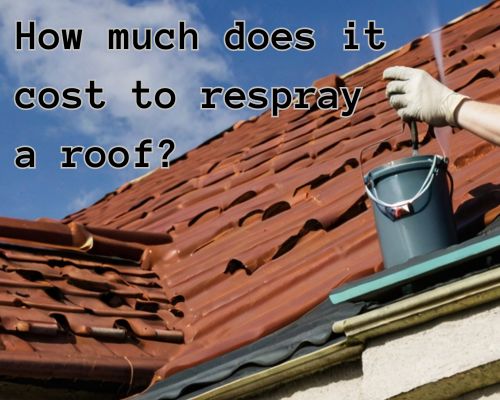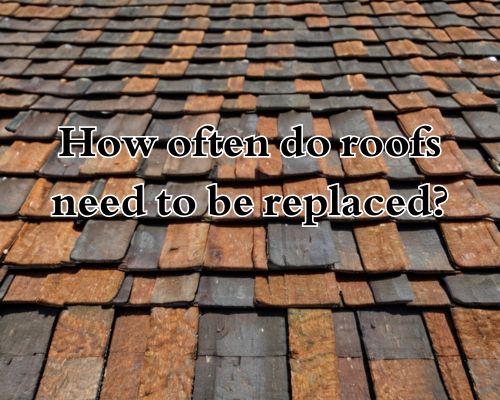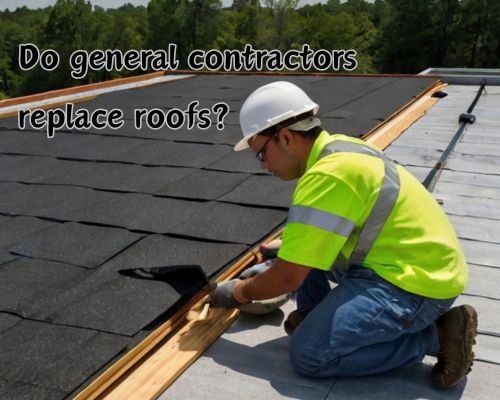How Much Does It Cost to Respray a Roof in New Jersey, USA?
How Much Does It Cost to Respray a Roof in New Jersey, USA?
Respraying a roof is a cost-effective way to enhance its longevity, improve its appearance, and add a layer of protection against the harsh weather conditions in New Jersey. Whether you’re a homeowner looking to maintain your property or a business owner ensuring your commercial space remains in top condition, understanding the costs involved is crucial.

Factors Affecting the Cost of Roof Respraying in New Jersey
The cost to respray a roof varies based on several factors, including:
1. Roof Size and Complexity
The total square footage of your roof significantly impacts the overall cost. A larger roof requires more materials and labor, increasing expenses. Additionally, complex roof designs with multiple angles, ridges, and slopes require more precision, leading to higher costs.
2. Roof Material
Different roofing materials require different respraying techniques and coatings. Common roof materials in New Jersey include:
- Asphalt Shingles – The most common roofing material, often requiring specialized coatings to extend lifespan.
- Metal Roofing – Requires rust-resistant coatings that enhance durability.
- Clay or Concrete Tiles – Need special sealants and coatings to maintain their natural look and durability.
- Flat Roofs (EPDM, TPO, or Built-Up Roofing) – Require specific waterproof coatings to prevent leaks.
3. Roof Condition and Preparation Work
If your roof has extensive damage, leaks, or mold buildup, additional preparation work is needed before respraying. This includes:
- Cleaning and removing debris
- Repairing minor cracks or damaged shingles
- Treating mold or algae buildup (common in humid areas like Jersey Shore)
- Applying a primer for better coating adhesion
4. Type of Coating Used
The type of coating used for respraying significantly affects the cost. Popular choices include:
- Acrylic Coatings – UV-resistant and energy-efficient, ideal for sloped roofs.
- Silicone Coatings – Highly durable and waterproof, suitable for flat roofs.
- Polyurethane Coatings – Impact-resistant and best for areas prone to severe weather.
5. Labor Costs in New Jersey
Labor rates vary depending on the contractor’s experience, demand, and location. In urban areas like Newark, Jersey City, and Trenton, labor costs may be higher due to increased demand. On average, labor costs range from $2 to $5 per square foot. For exact costing, visit CJ Commercial Roofing NJ.
6. Permits and Regulations
New Jersey has specific building codes and permit requirements for roofing projects. Depending on your city or county, permit fees can range from $100 to $500. Checking with local authorities ensures compliance and prevents costly fines.
Average Cost of Roof Respraying in New Jersey
Based on the factors above, here’s a breakdown of the average cost to respray a roof in New Jersey:
| Roof Size (Sq. Ft.) | Low-End Cost | High-End Cost |
|---|---|---|
| 1,000 Sq. Ft. | $2,000 | $5,000 |
| 1,500 Sq. Ft. | $3,000 | $7,500 |
| 2,000 Sq. Ft. | $4,000 | $10,000 |
| 3,000+ Sq. Ft. | $6,000+ | $15,000+ |
The total cost can fluctuate depending on the complexity of the job and the materials used.
DIY vs. Hiring a Professional in New Jersey
Some homeowners consider a DIY roof respraying project to save costs. However, without proper equipment and expertise, mistakes can lead to additional repairs and safety hazards. Hiring a licensed roofing contractor especially CJ Commercial Roofing NJ in New Jersey ensures:
- Proper application of coatings
- Compliance with local regulations
- Safety precautions are met
- Warranties on materials and workmanship
Many professional roofing companies in Newark, Edison, and Cherry Hill offer free estimates, allowing you to compare pricing and services before committing.
How to Choose the Right Roofing Contractor in New Jersey
When selecting a roofing contractor, consider:
- Licensing and Insurance – Ensure they are licensed in New Jersey and carry liability insurance.
- Experience and Reviews – Check online reviews on Google, Yelp, and the Better Business Bureau.
- Warranty Offers – Look for warranties on both labor and materials.
- Detailed Quotes – Avoid vague estimates; a detailed quote should outline material costs, labor, and additional fees.
Final Thoughts
The cost to respray a roof in New Jersey varies based on roof size, material, labor, and coating type. While prices typically range between $2,000 and $15,000, investing in high-quality materials and professional services ensures long-term durability and weather protection.
If you’re considering a roof respray, get multiple quotes from trusted local roofing professionals in Newark, Jersey City, Trenton, Edison, or Paterson. Proper planning and choosing the right contractor will ensure a cost-effective and long-lasting roofing solution.

